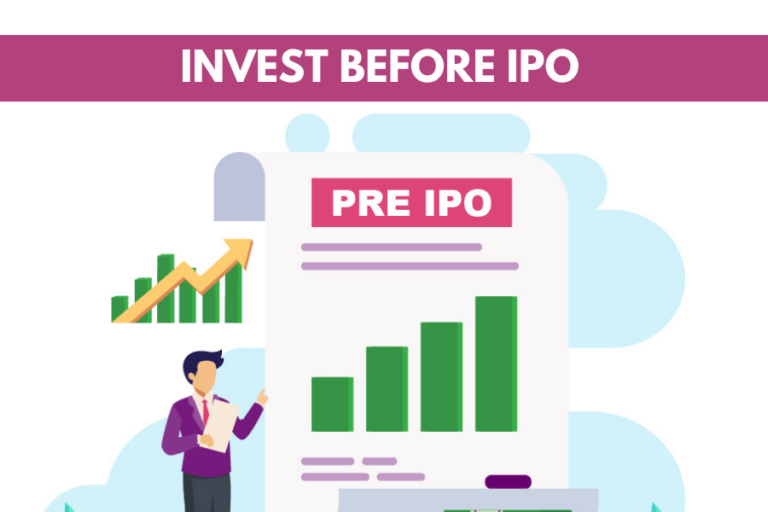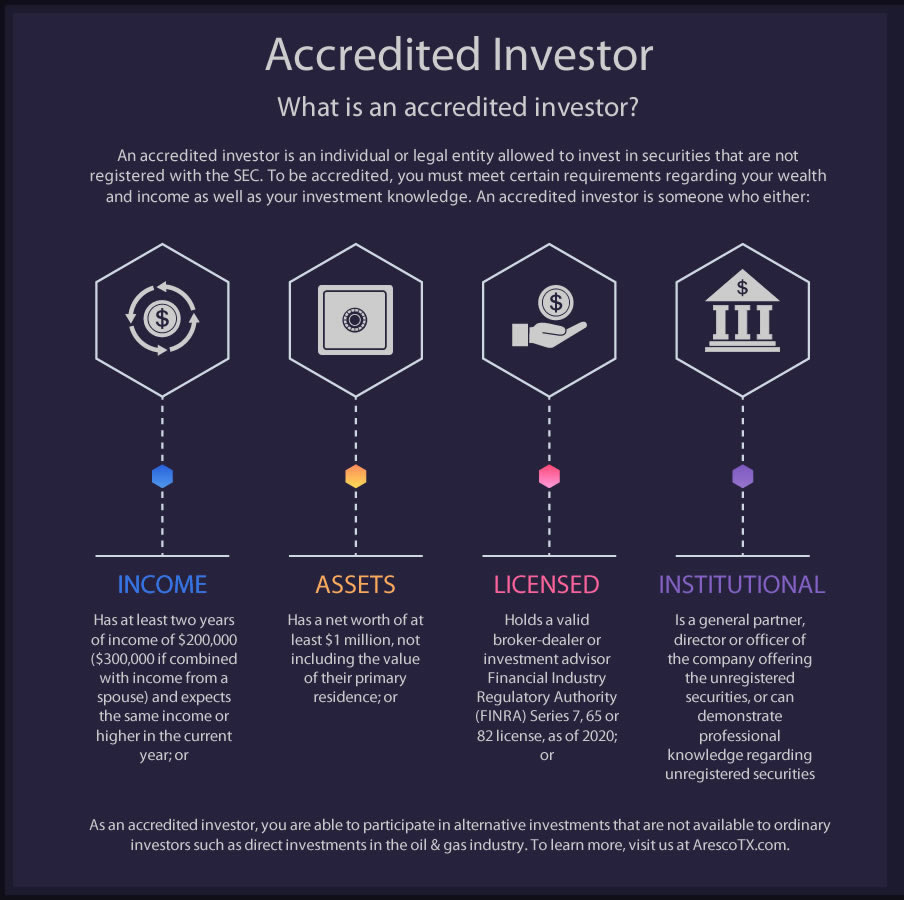Investors are constantly looking for new opportunities for growth and development within their investment horizons.
Enter pre-IPO placement, the “cash cow” for established financiers and self-made entrepreneurs.
This exclusive investment avenue provides a select group of investors with a unique chance to secure shares in a company before it debuts on the stock market.

Invest Before | Linkedin
The allure of private placements lies in the potential for significant returns once the company goes public.
Savvy investors often see this as an opportunity to get in on the ground floor of a promising venture, capitalizing on early-stage growth and value appreciation.
As a result, pre-IPO placement has become a sought-after strategy for those looking to diversify their portfolios and gain exposure to high-potential companies before they capture the attention of the broader market.
This investment approach requires a keen understanding of the target company’s fundamentals, industry trends, and the dynamics of the IPO market, making it an exciting yet nuanced endeavour for those navigating the ever-evolving landscape of investment opportunities.

Cash Cow |Adobe Stock
What are Pre-IPO Placements
Investopedia says pre-IPO placement, short for “pre-initial public offering placement,” refers to the private sale of a significant portion of a company’s shares to institutional investors or other qualified investors before the company goes public.
This strategic move aims to raise capital and gauge investor interest anticipating the initial public offering (IPO).
:max_bytes(150000):strip_icc()/IPO-final-1b2b21914247407a9e2f388ba50ab74e.png)
IPO | Investopedia
During pre-IPO placement, shares are typically sold at a predetermined price, often at a discount to the expected IPO price.
This approach allows the company to secure funding from investors willing to commit substantial amounts before the stock becomes publicly traded.
Companies commonly use pre-IPO placement to strengthen their financial position, build investor confidence, and create a more seamless transition to the public markets. It offers investors a unique opportunity to access shares in a potentially high-growth company before it officially goes public.
How Does Pre-IPO Placement Work?
Private investors typically purchase pre-IPO stocks in hopes that it will raise their net worth. The process begins when a company, usually in its later stages of growth and maturity, decides to go public by launching an initial public offering (IPO). Before the IPO, the company may opt for pre-IPO placement to raise additional capital and establish relationships with strategic investors.
Angel Investor | Fora Financial
In pre-IPO placement, the company issues shares to a select group of institutional investors, high-net-worth individuals, or private equity firms. These investors, in turn, acquire shares at a predetermined price, often at a discount to the expected IPO price. This practice allows the company to gauge investor interest and secure commitments from prominent players in the financial market.
For the investors involved, pre-IPO placement offers a chance to gain early access to shares of a potentially high-growth company. They are betting on the company’s future success and ability to perform well in the public market once the IPO occurs. The hope is that the value of the shares will surge when the company goes public, providing early investors with significant returns on their initial investment.
However, it’s crucial to note that pre-IPO placement comes with risks. The success of the investment depends on the company’s performance post-IPO, which can be influenced by various factors, including market conditions, industry trends, and the company’s ability to execute its business strategy.

Risks of Risk Management | SocialWorker
Participating in pre-IPO placement often requires a substantial investment, and investors may need to meet specific eligibility criteria. Additionally, the process involves exclusivity, with companies choosing investors strategically to align with their growth objectives.
In summary, pre-IPO placement bridges a company’s private and public phases, offering a unique investment opportunity for those seeking early entry into potentially lucrative ventures. Investors must carefully assess the company’s prospects, market conditions, and risk tolerance before engaging in pre-IPO placement.
How To Make A Pre-IPO Investment
While pre-IPO investments are traditionally reserved for accredited investors and high-net-worth individuals, certain avenues may allow retail investors to participate in these opportunities to some extent. Here are some potential ways for retail investors to get involved:
Secondary Market Transactions
Keep an eye on secondary markets where pre-IPO shares may be traded. Some private company shares are exchanged on secondary markets, allowing investors to buy shares from existing stakeholders. Platforms facilitating these transactions may allow retail investors to access pre-IPO shares, albeit with certain limitations.

Secondary Market: Meaning and Its Types | WealthDesk
Pre-IPO Funds and ETFs
Some investment funds and exchange-traded funds (ETFs) specialize in pre-IPO investments. These funds pool capital from various investors, including retail investors, and allocate it to a diversified portfolio of private companies on the brink of going public. Investing in such funds can provide indirect exposure to pre-IPO opportunities.
Equity Crowdfunding Platforms
Explore equity crowdfunding platforms offering private company shares to a broad investor base. While this method may not be a direct pre-IPO placement, it allows retail investors to participate in the growth of early-stage companies. Keep in mind that the regulatory landscape for equity crowdfunding varies by jurisdiction.
:max_bytes(150000):strip_icc()/crowdfunding.asp-final-631f299b9cdb408cb08288b305f78440.png)
Crowdfunding | Investopedia
Employee Stock Purchase Plans (ESPPs)
Some companies extend their employee stock purchase plans to non-employees, allowing retail investors to purchase shares at a discount. While this is not a conventional pre-IPO investment, it allows acquiring shares before the company goes public, leveraging the same principle of acquiring shares at a favourable price.
Networking and Relationships
Establish connections within the investment community, attend industry events, and leverage social networks to explore potential pre-IPO investment opportunities. Retail investors may sometimes gain access to pre-IPO placements through relationships with financial professionals or industry insiders.

8 Proven Professional Networking Tips | KADO Networks
Special Purpose Acquisition Companies (SPACs)
Consider investing in SPACs, which are publicly traded shell companies created to acquire private companies and take them public. While SPACs are public, they often target pre-IPO or private companies for acquisition, providing retail investors with exposure to the pre-IPO stage.
Retail investors must exercise caution and conduct thorough due diligence before exploring these opportunities. Investing in pre-IPO shares carries inherent risks, and potential returns are contingent on the success of the companies post-IPO. Additionally, regulatory considerations, liquidity constraints, and market dynamics should be carefully evaluated.
As the landscape evolves, retail investors may see more innovative avenues opening up, offering greater access to pre-IPO investments. Staying informed about market trends, regulatory changes, and emerging investment platforms is key for navigating this dynamic space.
Click here to read more about how to invest in pre-IPO startups.
Accredited Investors and Private Placements
An accredited investor is an individual or entity meeting specific financial criteria established by securities regulations.
In pre-IPO investing, these criteria typically involve annual income exceeding USD$200,000 (or USD$300,000 for joint income) for the past two years, a net worth exceeding USD$1 million (excluding the primary residence), and certain professional certifications or qualifications as specific entities.

Accredited Investor Requirements | Aresco
Accredited investor status is significant for accessing specific investment opportunities, such as private placements and pre-IPO offerings. Securities regulations permit companies to offer these private securities to accredited investors without the extensive disclosures required in public offerings.
Alexander Capital Ventures states, ” One reason these offerings (pre-initial public offerings) are limited to accredited investors is to ensure that all participating investors are financially sophisticated and able to fend for themselves or sustain the risk of loss.”
This aims to ensure investors have the financial sophistication to comprehend and bear the associated risks. Nevertheless, accredited investors should conduct thorough due diligence before participating in any investment, including pre-IPO opportunities.
Pros And Cons Of Pre-IPO Investing

Pros and Cons | Envoy
While it may be enticing for wealthy private investors to enter into the pre-IPO market, it is essential to consider the pros and cons of investing in pre-IPO companies:
Pros of Pre-IPO Investing
Here are some pros of pre-IPO investing:
Potential for High Returns
Investing in a company before it goes public provides an opportunity to benefit from significant value appreciation once the IPO occurs. Early investors may enjoy substantial returns if the company performs well.

Risk Return | ET Money
Access to Innovative Companies
Pre-IPO investors often gain access to groundbreaking and innovative companies that are not yet widely known to the public. This allows investors to support and be part of the early growth stages of potentially transformative businesses.
Diversification of Portfolio
Including pre-IPO investments in a portfolio can enhance diversification by introducing exposure to different sectors and industries. This diversification may help mitigate risks associated with a concentrated investment approach.

Diversification | Warrior Trading
Discounted Valuations
Pre-IPO shares are typically priced at a discount compared to the valuation after the IPO. This can be advantageous for investors, allowing them to acquire shares at a lower cost basis and potentially enjoy capital gains upon the company’s public debut.
Early Exit Strategies
In some cases, pre-IPO investors may have opportunities for early exits through secondary market transactions or acquisitions, providing liquidity before the company goes public.
Cons of Pre-IPO Investing
Here are some of the cons of buying pre-IPO shares:
High Risk and Uncertainty
Investing in private companies carries inherent risks, as their financial performance and market reception post-IPO are uncertain. Pre-IPO investors face the challenge of assessing a company’s potential without the same level of public financial disclosure.
Lack of Liquidity
Pre-IPO investments are illiquid, meaning they cannot be easily bought or sold on public exchanges. Investors may need to hold their positions for an extended period until the company goes public or another exit opportunity arises.
:max_bytes(150000):strip_icc()/GettyImages-672151269-275fb83dc3d04ddaa2f96dbb19c9e748.jpg)
Liquidity Crisis | Investopedia
Limited Information Availability
Private companies are not required to disclose financial information publicly to the same extent as public companies. This limited information can make it challenging for investors to conduct thorough due diligence and assess the company’s financial health.
Long Investment Horizon
Pre-IPO investments often require a long investment horizon, with the potential for returns to materialize only after the company goes public. Investors should be prepared for extended holding periods and the uncertainty associated with exit timing.
Potential for Losses
Not all pre-IPO investments result in successful IPOs or positive returns. Some companies may face challenges, market headwinds, or operational issues, leading to a decline in value or even failure. Investors should be aware of the risk of losing their entire investment.

Money Loss | Wayne State University
Regulatory and Compliance Risks
The regulatory environment surrounding pre-IPO investments can be complex. Investors must navigate legal and regulatory considerations, and regulation changes may impact the investment landscape.
Limited Control
Pre-IPO investors typically have limited control or influence over the company’s operations and strategic decisions. Management decisions may impact the success of the investment, and investors may have limited recourse.
An Example Of Pre-IPO Placement
Pre-IPO placements involve private sales of a company’s shares to institutional investors or private equity firms before the stock becomes publicly traded. While specific examples may vary, here are a few general scenarios that represent pre-IPO placements:
Strategic Investors
Investment Firms: Institutional investors, such as hedge funds or private equity firms, may negotiate with a company to purchase shares before its IPO. These firms bring capital and expertise, often aiming for significant returns.
Venture Capital Firms
Early-Stage Funding: Venture capital firms that supported a startup in its early stages may continue their investment through pre-IPO placements. This provides additional funding for the company’s growth. Check out our video here to learn more about venture capital and how to 10x your portfolio!
Private Equity Participation
Buyouts and Investments: Private equity firms may engage in pre-IPO placements as part of a strategic investment or buyout. This allows them to secure a stake in the company’s success.
Corporate Investors:
Industry Players: Established companies in the same industry might invest in a promising startup before IPO. This strategic investment can lead to collaborations or partnerships.
High-Net-Worth Individuals:
Angel Investors: Wealthy individuals, often known as angel investors, may participate in pre-IPO placements. They contribute capital in exchange for equity, hoping for substantial returns upon the company’s public listing.
Secondary Market Transactions:
Employee Stock Sales: In some cases, existing employees or early investors may sell their shares to institutional investors in a secondary market transaction before the IPO.
It’s essential to note that the details of pre-IPO placements can vary widely based on the specific agreements between the company and the investors involved. These placements offer a unique opportunity for investors to get involved in a company’s journey before it hits the public stock exchanges.
Pre-IPO Companies To Watch in 2024
Here are some of the top companies potentially offering pre-IPO opportunities in 2024:
Seat Geek
SeatGeek is an online ticket marketplace and mobile app that enables users to browse, find, and buy tickets for various events, including concerts, sports events, theatre performances, and more.

SeatGeek Review | PCMag
The platform aggregates tickets from different sellers and provides users with a comprehensive view of available options, including seating charts and pricing information.
SeatGeek’s user-friendly interface allows customers to search for events, compare ticket prices, and make purchases, streamlining ticket buying. Additionally, the platform often incorporates features like Deal Score and interactive seating maps to help users make informed decisions.
Lime
Lime, founded in 2017, has become a prominent player in the micro-mobility industry, offering an eco-friendly and convenient solution to urban transportation challenges.

Lime | Lime
The company aims to reduce traffic congestion and provide a sustainable mode of transport for short trips. Lime’s dockless system revolutionizes the last-mile transportation sector by providing users with a flexible and accessible means of getting around cities.
The electric scooters and bikes are equipped with GPS technology, making it seamless for users to locate and utilize them via the Lime mobile app. Lime has expanded its services to various cities globally, contributing to the evolution of urban mobility and encouraging environmentally conscious commuting practices.
Grammarly
Grammarly is a technology company that develops and provides a popular digital writing assistance platform. The company’s flagship product is the Grammarly writing tool, which helps users improve the quality and correctness of their written content.

Grammarly | Medium
Grammarly’s technology employs advanced algorithms and artificial intelligence to offer suggestions for grammar, spelling, punctuation, style, and tone in real time. The company aims to empower individuals to communicate effectively and confidently in their writing.
Grammarly offers its services through a web browser extension, desktop application, and integrations with various writing platforms.
If you want to read more about the benefits of buying pre-IPO shares and see more companies to watch for, check out our post here.
Key Takeaways
While it may be difficult for retail investors to get in on the ground floor of private companies, they have many avenues, including secondary market transactions, pre-IPO funds and ETFs, equity crowdfunding platforms, employee stock purchase plans, networking, and SPACs.
On the other hand, accredited investors who meet specific financial criteria play a significant role in pre-IPO investing due to their high net worth and risk thresholds.

Key Takeaways | Adobe Stock
Some pros of pre-IPO investing include potential high returns, access to innovative companies, portfolio diversification, discounted valuations, and early exit strategies. However, cons include high risk, lack of liquidity, limited information availability, a long investment horizon, potential for losses, regulatory risks, and limited control.
Whether or not you have the opportunity to invest in private placements, it is essential to learn as much as you can about your potential future avenues of revenue. As you expand your knowledge of investing and diversifying your portfolio to various holdings, use pre-IPO placement as a unique chance to secure shares with promising returns upon the IPO.
Disclosure/Disclaimer:
We are not brokers, investment, or financial advisers; you should not rely on the information herein as investment advice. If you are seeking personalized investment advice, please contact a qualified and registered broker, investment adviser, or financial adviser. You should not make any investment decisions based on our communications. Our stock profiles are intended to highlight certain companies for YOUR further investigation; they are NOT recommendations. The securities issued by the companies we profile should be considered high risk and, if you do invest, you may lose your entire investment. Please do your own research before investing, including reading the companies’ public filings, press releases, and risk disclosures. The company provided information in this profile, extracted from public filings, company websites, and other publicly available sources. We believe the sources and information are accurate and reliable but we cannot guarantee it. The commentary and opinions in this article are our own, so please do your own research.
Copyright © 2023 Edge Investments, All rights reserved.
